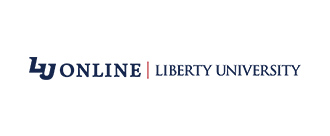Are you currently employed as a registered nurse and seeking to earn a bachelor's degree for possible career advancement opportunities? Liberty University's Bachelor of Science in Nursing (RN to BSN) program is designed to help you develop administrative skills and advanced knowledge in nursing concepts and practices. Read more about this online bachelor's degree program here.
<h2 id="section---FrequentlyAskedQuestions">Frequently Asked Questions</h2>
<h3 id="section---WhatKindOfProgramIsIt">What Kind of Program Is It?</h3>
<p>Liberty University's Bachelor of Science in Nursing (RN to BSN) program provides you with the opportunity to study fundamental and advanced topics in nursing strategies, research methods, and management techniques. This entire program is delivered in an online format. Some courses combine instruction with lab exercises. In core nursing courses, you will have the chance to study patient assessment methods, professional communication methods, management theories, healthcare policy regulations, advanced nursing practice, and leadership roles and responsibilities in the nursing profession. You will also have the opportunity to study advanced practices and strategies in community health, adult care, and childbearing patients. The practical application of methods and concepts studied in the program is achieved in a capstone course. Additional courses may include anatomy and physiology, microbiology, chemistry, pharmacology, and developmental psychology.
</p>
<h3 id="section---WhatAreThePrerequisites">What Are the Prerequisites?</h3>
<p>If you are interested in applying to Liberty University's Bachelor of Science in Nursing (RN to BSN) program, you must have already earned a high school diploma or GED. You should already be a licensed RN and have experience working in a healthcare setting. In addition, you should possess an associate's degree or diploma in nursing from an accredited institution.
</p>
<h3 id="section---WhatAreTheCourseRequirements">What Are the Course Requirements?</h3>
<p>You will be required to complete 120 credits to earn Liberty University's Bachelor of Science in Nursing (RN to BSN). The program includes 43 credits in general education requirements, 61 credits in the major area of study, and four credits in electives. You must also complete 12 credits in support courses.
</p>
<p><u>Courses for a Bachelor of Science in Nursing (RN to BSN)</u>
</p>
<p />
<table border="1"><tr><th>Course Number</th><th>Course Title</th></tr>
<tr><td><b>Foundational Studies</b></td><td /></tr>
<tr><td>ENGL 101</td><td> Composition and Rhetoric</td></tr>
<tr><td>ENGL 102</td><td> Composition and Literature</td></tr>
<tr><td>Communications Elective</td><td> Select One</td></tr>
<tr><td>MATH 201</td><td> Introduction to Probability and Statistics</td></tr>
<tr><td>APOL 104</td><td> Contemporary Worldviews</td></tr>
<tr><td>INFT 101</td><td> Instructional Tech. for Online Learning</td></tr>
<tr><td><b>Investigative Studies</b></td><td /></tr>
<tr><td>BIOL 213</td><td> Human Anatomy and Physiology I</td></tr>
<tr><td>BIOL 214</td><td> Human Anatomy and Physiology I Lab</td></tr>
<tr><td>History Elective</td><td> Select One</td></tr>
<tr><td>PSYC 210</td><td> Developmental Psychology</td></tr>
<tr><td>Humanities Elective</td><td> Select One</td></tr>
<tr><td>PHIL 201</td><td> Philosophy and Contemporary Ideas</td></tr>
<tr><td>BIBL 104</td><td> Survey of Biblical Literature</td></tr>
<tr><td>THEO 104</td><td> Introduction to Christian Thought</td></tr>
<tr><td>Select one of the following:</td><td /></tr>
<tr><td>PSYC 101</td><td> General Psychology</td></tr>
<tr><td>SOCI 201</td><td> Introduction to Sociology</td></tr>
<tr><td>GOVT 200</td><td> Constitutional Government and Free Enterprise</td></tr>
<tr><td><b>Nursing (RN to BSN) Major Core Courses</b></td><td /></tr>
<tr><td>NURS 105</td><td> Medical Terminology</td></tr>
<tr><td>NURS 210</td><td> Health Assessment</td></tr>
<tr><td>NURS 215</td><td> Pathophysiology</td></tr>
<tr><td>NURS 220</td><td> Advanced Nursing Communication</td></tr>
<tr><td>NURS 221</td><td> Fundamentals in Nursing</td></tr>
<tr><td>NURS 225</td><td> Research in Nursing</td></tr>
<tr><td>NURS 301</td><td> Strategies for Adult Health Care I</td></tr>
<tr><td>NURS 302</td><td> Strategies for Adult Health Care II</td></tr>
<tr><td>NURS 305</td><td> Pharmacology</td></tr>
<tr><td>NURS 306</td><td> Pharmacology II</td></tr>
<tr><td>NURS 215</td><td> Pathophysiology</td></tr>
<tr><td>NURS 325</td><td> Nursing Concepts</td></tr>
<tr><td>NURS 352</td><td> Caring for the Childbearing Family I</td></tr>
<tr><td>NURS 353</td><td> Caring for the Childbearing Family II</td></tr>
<tr><td>NURS 440</td><td> Strategies for Comm. Health Care</td></tr>
<tr><td>NURS 445</td><td> Population Health</td></tr>
<tr><td>NURS 460</td><td> Advanced Strategies for Adult Health Care</td></tr>
<tr><td>NURS 490</td><td> Leadership and Management in Nursing</td></tr>
<tr><td>NURS 491</td><td> Nursing Management</td></tr>
<tr><td>NURS 492</td><td> Advanced Concepts in Nursing Practice</td></tr>
<tr><td><b>Support Courses</b></td><td /></tr>
<tr><td>BIOL 204</td><td> Introductory Microbiology</td></tr>
<tr><td>BIOL 215</td><td> Human Anatomy and Physiology II</td></tr>
<tr><td>BIOL 216</td><td> Human Anatomy and Physiology II Lab</td></tr>
<tr><td>CHEM</td><td> Chemistry Requirement</td></tr>
</table><h3 id="section---WhatCouldIDoAfterIGraduate">What Could I Do After I Graduate?</h3>
<h4 id="section---CareerOpportunities">Career Opportunities</h4>
<p>Once you have earned Liberty University's Bachelor of Science in Nursing (RN to BSN), you could pursue greater responsibilities in your current position or seek management or supervisory positions in any type of healthcare environment. You might seek work as a nursing manager in hospitals, clinics, group medical practices, community health centers, nursing homes, or long-term care facilities.
</p>
<h4 id="section---AdvancedDegrees">Advanced Degrees</h4>
<p>Upon completion of the Bachelor of Science in Nursing (RN to BSN) program, you might wish to continue your education by entering a master's degree program. A master's degree could be necessary if you are seeking even more advanced positions, such as nursing administrator or nurse educator.
</p>
<p>You could pursue a:
</p>
<ul><li>Master of Science in Nursing
</li><li>Master of Science in Nursing Administration
</li><li>Master of Science in Healthcare Administration</li></ul>


.svg)


